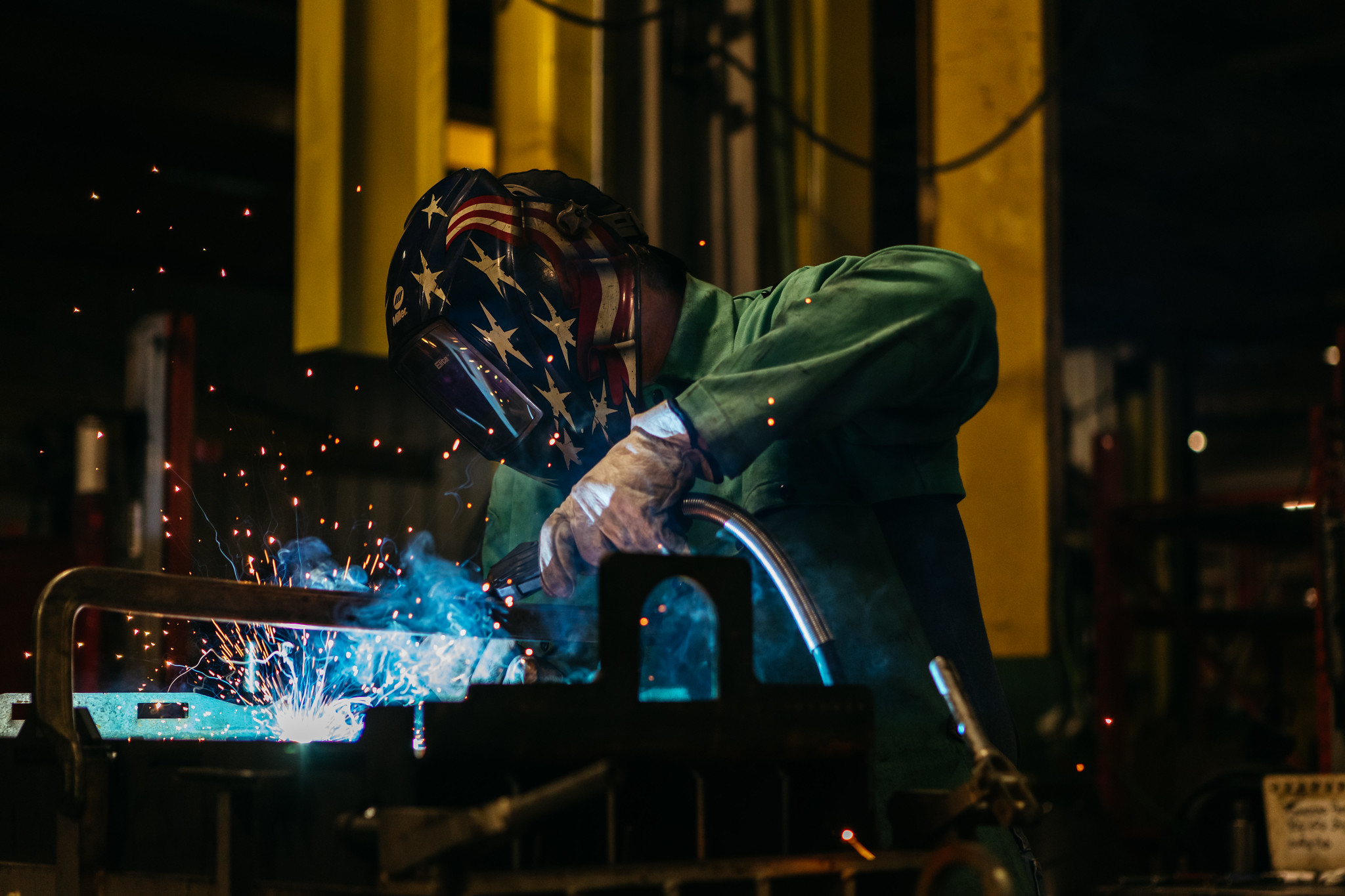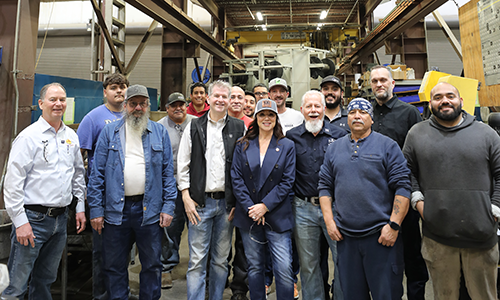After more than three years of advocacy efforts by AEM, the United States-Mexico-Canada Agreement (USMCA) finally entered into force on July 1, 2020.
The agreement now replaces the decades-old North American Free Trade Agreement (NAFTA) that has been the framework for trade relations in North America since Jan. 1, 1994. The NAFTA was an agreement that broadened the earlier U.S.-Canada Free Trade Agreement (entry into force on Jan. 1, 1989) to Mexico to create the largest free trade area in the world.
AEM actively advocated for our industry’s priorities regarding the USMCA with U.S. and Canadian government stakeholders, joined the USMCA Coalition, co-hosted the Honorable Mike Pence, Vice President of the United States, at an equipment manufacturing facility in August 2019 to raise public support for the agreement, supported the work by Chairman Neal (D-Mass.) and the nine members of the House Democrats’ Trade Working Group, and ran an ongoing public education campaign on the various benefits of a ratified USMCA.
Moving forward, to help our industry navigate the new United States-Mexico-Canada Agreement (USMCA), AEM has put together the following guide. Member companies actively involved in the North American market should review the following information on important changes effecting the equipment manufacturing industry:
USCMA: Looking Ahead
June 30, 2020: NAFTA rules continue to apply for merchandise entered into commerce on or before June 30, 2020.
July 1, 2020: The USMCA enters into force.
July 1, 2020: Alternative staging regime for USMCA Rules of Origin for Automotive goods. Vehicle producer must submit a petition with draft alternative staging plan to provide additional time and different phase-in of the new requirements (importers of certain vehicles will have an additional 2 years to meet the requirements and the vehicles will have different RVC4 and LVC5 thresholds).
July 2, 2020: Disputes are expected to be filed under the rapid response labor enforcement mechanism. More inquiries on the status of implementation efforts are also likely between the Parties.
Aug. 31, 2020: If deficiencies in a vehicle producer's draft alternative staging plan are identified, it must submit a petition and final draft plan correcting those deficiencies by this date. If no deficiencies are identified, the vehicle producer must submit a petition with a final draft alternative staging plan with any modifications, or a statement requesting that its draft alternative staging plan be considered final, by this date.
USMCA Implementation Guidelines
Phase I Implementation - first six months upon entry into force - (July 1, 2020 to Dec. 31, 2020).
U.S. Customs and Border Patrol (CBP) understands that industry may need time to adjust business practices to comply with the new requirements under the USMCA, particularly relating to the preferential tariff treatment of goods.
In accordance with principles established under the Customs Modernization Act (Pub. L. 103-182, 107 Stat. 2057), during the first six months after entry into force, CBP will focus on supporting industry’s efforts to fully comply with USMCA requirements, including providing webinars and other outreach efforts to educate the trade on the new Agreement.
Importers are required to exercise reasonable care when making a claim under USMCA, including ensuring that they are in possession of a complete and valid certification of origin at the time of making a claim and meeting all record-keeping obligations.
In order to provide industry sufficient time to adjust to the new requirements and in consideration of the business process changes necessary to achieve full compliance, CBP may in appropriate cases, show restraint in enforcement during the six-month period after USMCA’s entry-into-force. CBP will consider the difficulties importers may face in complying with the new rules, as long as importers are making satisfactory progress toward compliance and are making a good faith effort to comply with the rules to the extent of their ability.
Considerations for Equipment Manufacturers
Automotive Products
- Maintains the tariff shift and regional value content requirement
- Elimination of “tracing” and “deemed originating” in automotive rules of origin
- Additional requirements for auto producers
Regional Value Content (RVC)
- Increased from 62.5% to 75% for automotive and automotive parts
Steel and Aluminum
- 70% of producer’s corporate purchases must be originating
- Steel must be melted and poured in a USMCA country beginning July 1, 2027
- Aluminum requirement will be revisited in 10 years
- Per USMCA implementation guidelines, in order for a covered vehicle to be eligible for preferential tariff treatment under the USMCA, the producer must certify to CBP that it complies with the Steel and Aluminum (“S&A”) requirements of the automotive appendix
Labor Value Content
- 40% or 45% of overall content must be produced by high-wage workers (Minimum $16 USD per hour)
Standard transition period of three years: specific incremental increase per year for the RVC and LVC requirements.
Resources for Equipment Manufacturers
Key Resources of Federal Agencies
- Small Business Administration International Sales
- Small Business Administration Loan Guarantees
- Small Business Development Centers
- STEP Awards
- EXIM Bank Credit Insurance
- Trade Finance Guide
- U.S. Foreign Agricultural Service
- U.S. Trade Representative
- U.S. Customs and Border Protection
Priority trade issues/trade agreement information
CBP importing information
- CBP Help Desk at 1-877-CBP-5511
- https://www.cbp.gov/contact
ACE entry filing problems/rejects
- Your assigned ACE client representative
CBP entry-specific inquiries
- Contact the Import Specialist Team at your assigned Center of Excellence of Expertise at www.cbp.gov/trade/centers-excellence-and-expertise-information/cee-directory
Exports
Quota
- Email the Quota Branch at HQQUOTA@cbp.dhs.gov
Trade agreement inquiries
- Email the Trade Agreements Branch at FTA@cbp.dhs.gov
USMCA Center
- If the resources listed above cannot answer your inquiry, please contact USMCA@CBP.DHS.gov
For further assistance, please contact AEM Director of Government Affairs Alex Russ at aruss@AEM.org.
Subscribe to our AEM newsletters for more AEM news and updates.





